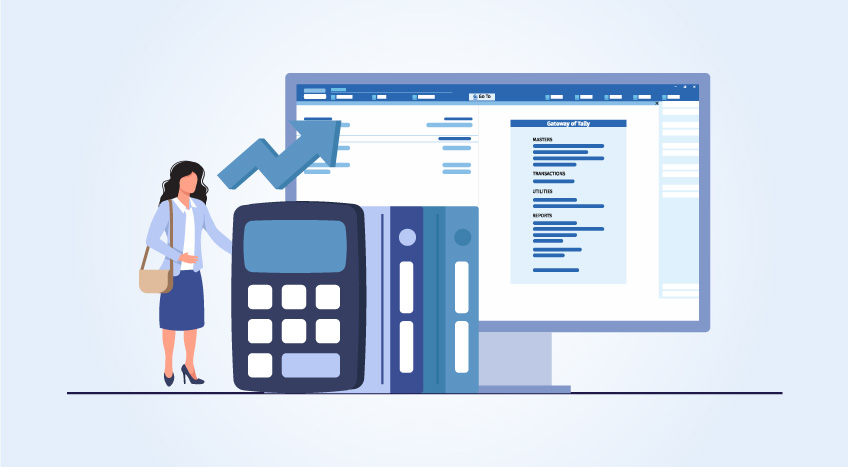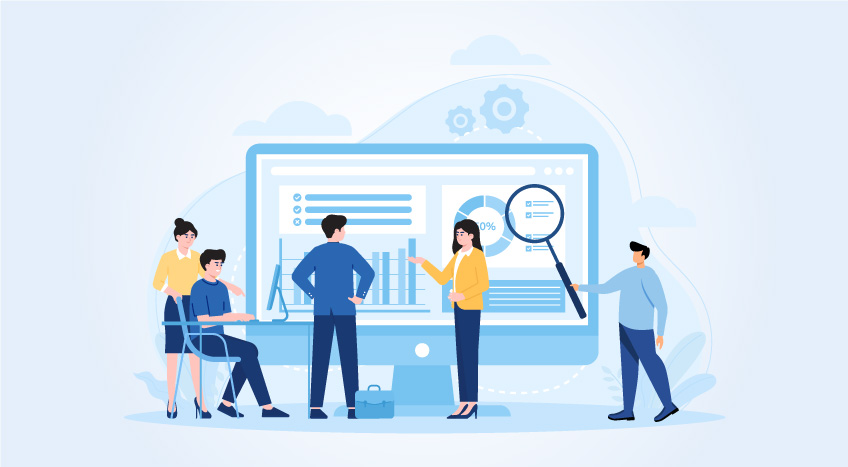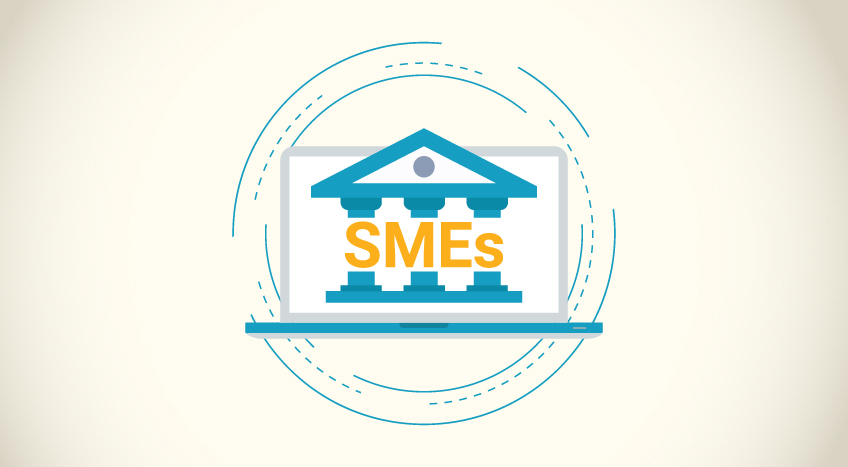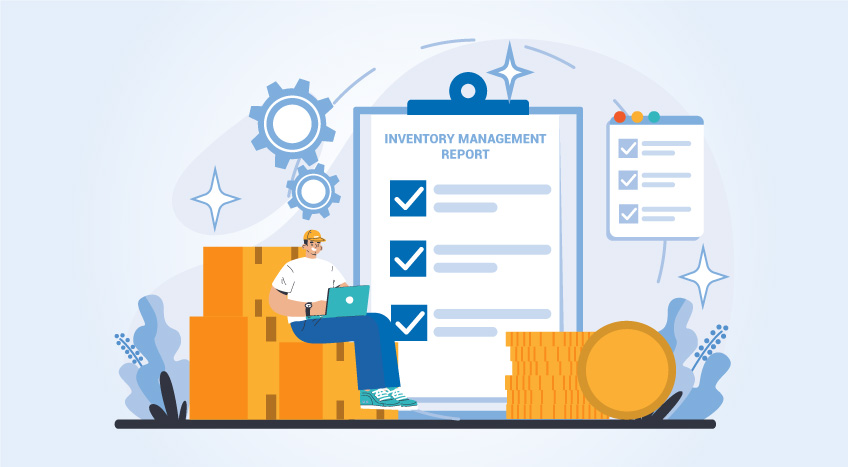- Accounting data analytics: Role in accounting and finance
- Big data in accounting
- Big data in finance
- Applications of big data analytics in finance
- Data mining in accounting
- Accounting and data science
- How accounting data analytics benefits accountants
- Modern tools for accounting data analytics
Accounting and analytics go hand in hand. Accounting not only serves the purpose of storing a company’s financial accounting details, but it also serves as a mine of data that can be used to derive meaningful insights. Accounting software makes it easier to sift through and analyze accounting data, interpret the information and use it to make better business decisions. Accounting data analytics has enabled many companies to leverage accounting to study all aspects of their business processes and become more efficient, competitive, and profitable. It is essential to choose the best accounting software that goes one step further than the standard accounting reports to give a company data analytics tools and reports.
|
How Can Accountants Use Technology to Deepen Client Relationships |
Best Billing Software In USA – Things To Look Up Before Purchasing A Billing Software |
Accounting data analytics: Role in accounting and finance
Accounting data analytics helps precisely measure and visualize the company's financial information and trends. It adds value to the company by helping boost revenues, reduces costs and boosts profitability. Companies use data analytics to monitor both structured and unstructured data. Data analytics can be used to identify customer trends and preferences so that the company can anticipate and better take advantage of opportunities and trends. Data analytics algorithms can be used to monitor stock prices, and trends so that sell or buy decisions can be made when the desired condition is met. The process of buying and selling can also be automated.
Accountants can leverage accounting data analytics to add more value for their clients by:
- Giving them border and deeper insights into their final and operational data
- More precise forecasts and projections
- Being more accurate and cost-effective
- Creating value and accelerating growth by using the huge amounts of data available to them
Data analytics in accounting has seen a massive surge in accessibility and usage driven by the broth of cloud storage systems and computing power. The data available for analysis has also grown. Open-source software and networks are also crucial in helping data and accounting specialists communicate and work together.
Accounting data analytics is transforming the accounting field as the industry is becoming more open to emerging technology and tools. Clients’ expectations and the services offered by accountants have evolved to embrace the applications of data analytics. Some of the areas affected the most by the use of these new technologies are:
- The required skills and training for finance and accounting professionals
- Use and integration of technology with the existing processes
- Higher client expectations
The shift in technology adoption has made the accounting industry more open to recruiting candidates from diverse backgrounds. The entire industry is adopting technology faster than before to increase productivity and competitiveness and save time and effort.
Since much of the data analyzed is customer data, accountants and companies must follow a code of ethics, such as the code of ethics for web analysts created by the Digital Analytics Association.
- Accounting data analytics should be transparent and ethical while protecting the privacy of the customer by safeguarding the personally identifiable information (PII) of the customers.
- Data analysts must also be ethical in not trying to skew, manipulate or suppress any negative results or trends that result from data analysis. A data analyst must also be honest about how reliable the data and the analysis are.
- Data analysis must add value to the clients while allowing them to retain full ownership of their data.
Accountants must also keep the following aspects of data analysis in mind when applying it to their work:
- The iterations of testing and application may mean that there are errors at the beginning that become fewer with more iterations
- It should add value to the clients by helping improve all aspects of their business through data-driven decision-making
- Transparency with the client about any mistakes or chances of drawbacks is important
Big data in accounting
Data analytics in accounting gathers, organizes, and analyzes data to get exciting new insights into the data. While traditional financial reports give weekly, monthly, and yearly statuses, data analytics can be used to monitor selected parameters and behaviors in real-time continually. Traditional reports rely on structured data, usually in databases. Data analysis can be performed on structures as well as unstructured data such as social media feeds, images, email, web content and smart devices.
New data analysis technology also allows for the processing of very large amounts of data accurately and in a short time. Instead of reports and graphs, the analytics can be presented in exciting and easy-to-understand ways. The same set of data can also be viewed at different levels and perspectives easily. Real-time accounting data analytics also helps accountants make better and more informed risk analyses.
Companies are using big data for a wide range of purposes including performance evaluation, decision making, strategic planning, research and development, better order fulfillment and rationalizing their products and services.
Accounting data analytics and big data have also improved the privacy and data security of companies and accounting firms as it requires the analysis of customer data. Business decisions and risk management are also greatly improved as data analytics helps management better understand the dynamics of all the factors that affect their operations and business. The proliferation of data analytics usage in business has necessitated the upskilling of accountants and finance personnel to be able to use new tools for data analytics.
Big data in finance
Stock Markets, investors and stakeholders have embraced the use of big data to change the way in which they make investment decisions. Rather than manually or intuitively judging a market, data analytics helps precisely track, analyze and visualize the changes and developments in the markets.
Big data and data analysis in finance gives finance professionals tools beyond monthly financial reports. They can use data analytics to monitor and analyze the markets, companies and other entities or market factors in real-time. Information and data are also not limited to structured data in databases. Modern tools allow for the analysis of unstructured data such as images, audio, video, social media text files, email and a range of data sources. So, fine professionals can easily stay up to the minute with any happenings in the finance world. It is important in this scenario that different departments and organizations not be divided by their inability to share or access financial data.
Applications of big data analytics in finance
Big data analytics is very useful in the world of finance which traditionally is one that uses a lot of data. But rather than static reports, data analysis allows for real-time, in-depth insights into the markets. Instead of manual number crunching, big data tools allow stock brokers, analysts, and investors to visualize, analyze and even predict trends and the risk involved.
Some of the primary applications of big data in finance are:
- Real-time stock market analysis and insights: Stock markets produce huge amounts of data that an investor must analyze to make decisions. Big data goes one step further by using machine learning to automate the process of forecasting market trends. Machine learning uses algorithms to analyze huge amounts of data for automated predictions and decision-making. The speed at which machine learning can forecast based on vast data is astonishing and very useful. It enables stakeholders to make decisions in a data-based and bias-free manner. The advantages of using big data analytics are more precise insights, lesser risk and better returns.
- Financial models: Predictive models and forecasts are vital to finance decisions. Instead of static monthly and annual reports, real-time data analytics gives more precise finance models and less risk.
- Customer analytics: A company that understands its customers is better able to serve them. Using data analysis tools helps understand the preferences and requirements of customers. So, companies can tailor their services, products, marketing campaigns and delivery modes to suit their customers’ expectations better. They can also more precisely forecast the trends and use them for better product development.
- Risk and fraud: Risk is better managed when there are more accurate finance insights, models and forecasts. The elimination of bias and human errors makes big data analytics more reliable as a basis for financial decisions. Fraud is easily identified when data is monitored closely. Duplicate and suspicious transactions can be pinpointed and red-flagged immediately. This is a great deterrent to fraudulent activities. Past data can be used to identify fraudulent patterns better and prevent similar fraud in the future.
Data mining in accounting
Data mining is the process of analyzing huge amounts of data in order to identify any patterns in them. It is helpful to gain inferences on customer trends, behavior and trends within the financial data of a company. Companies can use the information that they get from data mining in order to better tailor their offerings and target the requirements of their customers.
The other benefits of using accounting data analytics and data mining in accounting are:
- Better sorting and organization of data
- More accurate forecasting and modeling
- Prediction of the outcome of an audit and the auditors’ opinion
- Identification of fraud
Since data mining detects patterns, it can quickly identify the pattern associated with fraud, and the company can better protect itself from attempts at fraud. When data mining is performed with machine learning, the system improves with every iteration and improves at identifying patterns and similarities.
Similarities are identified by the following methods:
- Classification/categorization: Items with common attributes within a data set
- Clusters: Groups following similar patterns
- Associations: Relationships within the items
Accounting and data science
Accounting and accounting data analytics together add tremendous value to accounting firms and their clients. When accountants use data analytics they are able to offer deeper insights and in-depth analysis and monitoring of the company’s financials. Accountants are also able to provide more accurate forecasts and estimates and lower the risk of decision-making. Accountants can help companies better align with their customer’s expectations and improve their services and products.
Accountants can use big data analysis to help their clients anticipate market trends and take advantage of them. By understanding customer behavior, a company is better prepared to meet highs and lows in demand. They can also improve their customer service and product offerings by using the insights that data analytics gives them.
It is easier to detect fraud using data analytics. Fraud is easier to detect and pinpoint. This is especially helpful in companies that deal with banking, payments and credit cards. Rules-based analysis easily detects suspicious behavior, banking and credit card fraud. If data is compromised, data analytics can detect the errors and also help to fill in the gaps and blanks.
How accounting data analytics benefits accountants
Accounting data analytics offers great benefits to accountants and their clients. Some of the key benefits are:
Deeper and broader insights: The vastness of the data that can be accommodated in data analysis makes it easier for accountants to present an analysis from a very broad perspective and then zoom in deeper as required. It helps in the analysis, optimization, forecasting and planning of a company’s business processes.
Accurate predictive models: Accounting data analytics equips accountants with the tools required for very precise and accurate forecasting models. This is invaluable to making better strategies, budgets and business plans. The more iterations of forecasting and learning that a model goes through, the better it becomes forecasting and predictive models.
Automation: The automation of repetitive tasks in accounting removes errors and boosts the speed, efficiency and ease of maintaining a company’s accounts. Accountants enjoy better work satisfaction and are able to serve their clients better.
Modern tools for accounting data analytics
TallyPrime is a go-to solution for comprehensive business management tools with accounting data analytics. In addition to managing and integrating all the different facets of a company’s business, TallyPrime also allows users to use data analytics tools to derive better insights into financial information.
Read More:
- Invoicing And Billing Software in USA That Best Suits Your Business
- Best Accounts Payable Automation Software in USA
Explore more Products.










